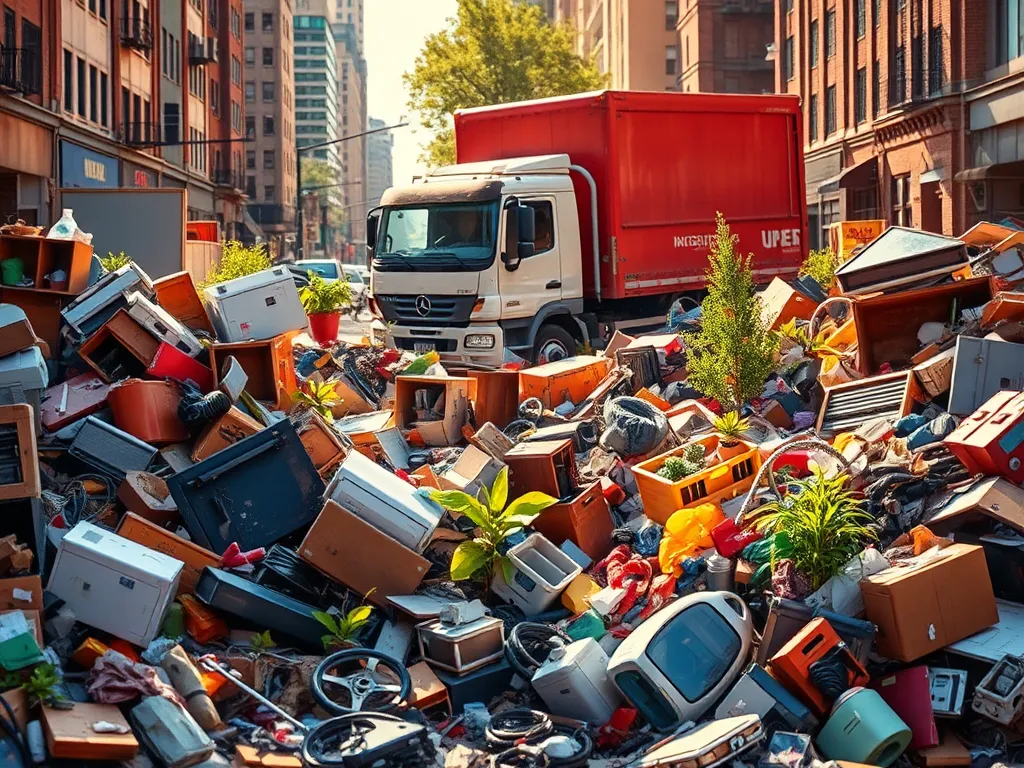Exploring the Latest Trends in the Junk Removal Industry

Trends in the Junk Removal Industry
The trends in junk removal industry are evolving rapidly, driven by environmental concerns, technological advancements, and changing consumer behaviors. As society becomes more aware of the impacts of waste on the environment, the demand for junk removal services has surged. Companies are adapting to these trends by implementing sustainable practices and leveraging technology to improve their services. This article explores the significant trends shaping the junk removal industry today.
One of the most prominent trends in junk removal industry is the emphasis on sustainability. Consumers are increasingly prioritizing eco-friendly practices, pushing companies to adopt greener approaches to waste management. This includes everything from donating usable items to recycling materials and employing eco-friendly disposal methods. As sustainability becomes a core value for many businesses, junk removal companies are finding new ways to align their operations with environmentally responsible practices.
Technological innovation is another critical trend in the junk removal industry. The integration of mobile applications for scheduling and payments has made it easier for consumers to access services on demand. Moreover, automation in junk removal processes is streamlining operations, reducing labor costs, and increasing efficiency. Companies are also beginning to utilize artificial intelligence (AI) to improve sorting and processing of waste, helping to minimize landfill contributions and boost recycling rates.
Market growth and economic trends are also shaping the junk removal industry. The increasing demand for junk removal services can be attributed to several factors, including the rise of e-commerce, which generates significant amounts of packaging waste. Additionally, urbanization is leading to population density in cities, creating more opportunities for junk removal services as residents look to declutter their living spaces. Companies are positioning themselves to capitalize on this growing market by expanding their service offerings and enhancing their operational efficiencies.
Scholars exploring sustainability practices in waste management can gain valuable insights from recent studies available on Academia.
Consumer awareness and behavior changes are influencing the trends in junk removal industry. There is a growing preference for eco-friendly services as consumers become more conscious of their environmental footprint. Additionally, the rise of minimalism, where individuals seek to simplify their lives, has led to an increase in decluttering activities and, consequently, the demand for junk removal services. Social media plays a pivotal role in shaping consumer choices, with platforms actively promoting sustainable living and influencing public perception about waste management services.
Sustainability Practices in Junk Removal
Many junk removal companies are adopting eco-friendly disposal methods, such as using local recycling facilities, to minimize the environmental impact of their operations. These methods ensure that as much waste as possible is diverted from landfills.
Recycling initiatives are becoming standard practice within the junk removal industry. Companies are increasingly collaborating with recycling centers to ensure that materials like metals, plastics, and electronics are processed correctly, thereby contributing to the circular economy.
Composting and waste reduction strategies are also gaining traction. By promoting composting of organic waste and educating consumers about waste reduction practices, junk removal companies are playing a vital role in reducing overall waste generation.
Technological Innovations in Junk Removal
The emergence of apps for scheduling and payment has revolutionized how consumers interact with junk removal services. This user-friendly approach has made it more convenient for individuals to declutter their homes or businesses quickly and efficiently.
Automation in junk removal processes, including the use of trucks equipped with hydraulic lifts and automated sorting systems, enhances operational efficiency and reduces labor costs across the industry.
The integration of AI in junk removal services is paving the way for more effective sorting of items. With intelligent sorting algorithms, companies can analyze what materials can be recycled or reused, thus optimizing their waste management strategies.
Market Growth and Economic Trends
The increase in demand for junk removal services reflects a broader trend toward professional decluttering. As individuals and businesses seek efficiency, the convenience of hiring professionals for junk removal is becoming more appealing.
The impact of e-commerce on junk removal is significant, as the surge in online shopping contributes to increased packaging waste and consumer goods that need disposal. This creates opportunities for junk removal companies to address the growing waste problem.
Urbanization plays a notable role in market expansion, as densely populated areas see higher levels of waste production. Junk removal services are poised to benefit from the increased need for decluttering in urban centers, creating a sustainable business model.
Consumer Awareness and Behavior Changes
Trends in consumer preferences indicate a shift toward eco-friendly services, driven by greater awareness of environmental issues. Companies that prioritize sustainability in their operations can attract a more conscientious customer base.
The rise of minimalism and its focus on decluttering have a direct impact on junk removal services. As more people adopt minimalistic lifestyles, quite often, they choose professional services to help manage excess items effectively.
Social media significantly influences consumer choices regarding junk removal. Platforms promoting sustainable living create awareness and encourage individuals to consider how they manage waste in everyday life, impacting their service preferences.
Regulatory Changes in Junk Removal
New regulations affecting waste management are increasingly being implemented, driving junk removal companies to adapt their practices accordingly. Compliance with local and national laws is essential for maintaining operational legitimacy.
The impact of local policies on junk removal services influences how companies operate. Policies focused on recycling and waste reduction can affect service offerings and customer engagement strategies.
Finally, liability and insurance considerations for junk removal companies are becoming more complex due to regulatory changes. Companies need to stay informed about legal obligations while ensuring adequate protection for their operations and clients.
